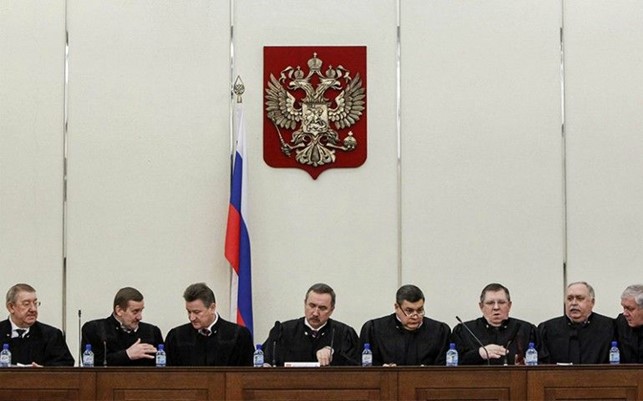Taganrog LRO and others v. Russia, Nos. 32401/10 and other 19, ECtHR (Third Section), 7 June 2022

The European Court of Human Rights has recently dealt, another time, with the treatment of Jehovah’s Witnesses in the Russian Federation. The case revolved around various actions taken by the resistant State against Jehovah’s Witnesses religious organisations, as well as individual faithful, over a ten-year span. Among those, numerous applicants complained about a requirement to re-register as Jehovah's worshippers, and also about several newly introduced amendments to the anti-extremist Russian legislation leading to the banning of their religious literature and international website (expressively deemed “extremist”) and the revocation of their permit to distribute religious magazines. Eventually, the State aimed to a nationwide ban on Jehovah’s Witnesses religious organisations in Russia, the criminal prosecution of hundreds of individual Jehovah’s Witnesses and the confiscation of their property.
In face of the Strasbourg Court, the applicants relied on a plurality of provisions of the Convention. In particular, they complained that the designation and banning of Jehovah’s Witnesses’ religious literature as “extremist material”, the forced dissolution of their organisations and the prosecution of individual Jehovah’s Witnesses had breached their rights to freedom of religion, to freedom of expression and to freedom of assembly and association, respectively guaranteed by articles 9, 10 and 11. In addition, some of them complained that the withdrawal of the permit to distribute religious magazines and the decision to block the Jehovah’s Witnesses’ international website had no basis in Russian law and had not been necessary for a democratic society. Relying on Article 1 of Protocol No. 1, some others also complained that the decision to confiscate their publications, places of worship and other property had violated their right to peacefully enjoy their possession.
The Court found that the behaviour of the resistant State amounted to a plurality of violations of the Convention. Notably, it held that there had been a violation of Article 9 of the European Convention on Human Rights, read in the light of Article 11, on account of the forced dissolution of the Taganrog LRO (the first applicant); a violation of Article 10 on account of the banning and confiscation of religious publications; a violation of Articles 10 and 11, read in the light of Article 9, on account of the designation of Jehovah’s Witnesses’ publications as “extremist”, the prosecution of individual applicants and the forced dissolution of the other applicant organizations; a violation of Article 10, read in the light of Article 9 on account of the withdrawal of the distribution permit of the religious magazines; a violation of Article 9 on account of the criminal prosecution of Jehovah’s Witnesses; a violation of Article 1 of Protocol No. 1 on account the confiscation of the applicants’ properties.
(Comment by Andrea Cesarini)

